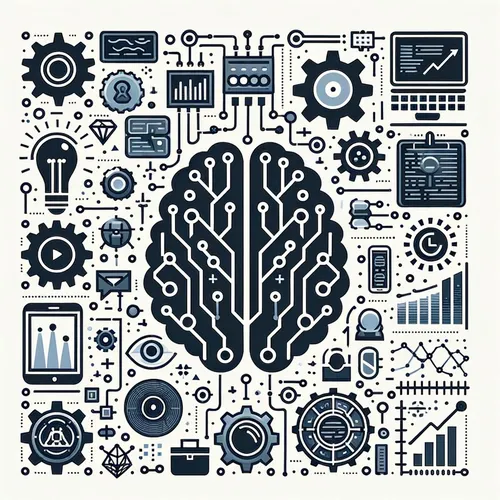AI Gossip: ML's Trillion-Dollar Glow Up! Businesses Swipe Right on Efficiency Gains and Skyrocketing ROI 📈💰🔥
- Author
- Quiet. Please
- Published
- Wed 27 Aug 2025
- Episode Link
- https://www.spreaker.com/episode/ai-gossip-ml-s-trillion-dollar-glow-up-businesses-swipe-right-on-efficiency-gains-and-skyrocketing-roi--67527884
This is you Applied AI Daily: Machine Learning & Business Applications podcast.
Applied artificial intelligence and machine learning are not just tech buzzwords—they are now critical engines powering innovation and business transformation across every major industry. According to Radixweb, the global machine learning market is valued at nearly ninety-four billion dollars this year and is on pace to cross one point four trillion dollars by 2034, with North America commanding almost half the market. This phenomenal growth is matched by real adoption—over eighty percent of organizations in leading regions now implement machine learning for core business functions.
Across healthcare, retail, finance, logistics, and more, machine learning drives both top-line growth and operational efficiency. For example, IBM’s Watson Health deploys natural language processing to help physicians rapidly analyze patient histories, leading to improved treatment recommendations and significant gains in the precision of personalized medicine. In supply chain management, predictive analytics now optimize inventory and transportation, with Amazon and UPS reducing delays and costs by forecasting demand and mapping more efficient routes. Retailers harness machine learning for hyper-personalized marketing, real-time pricing, and smarter inventory control—a trend highlighted yesterday as several major U S chains reported record efficiency gains in their quarterly filings.
A key lesson from these case studies is that translating machine learning from prototype to production means overcoming data integration hurdles and aligning technical solutions with real business needs. Leaders emphasize that the greatest returns—often exceeding four hundred percent ROI, as seen with Zip’s automated customer service system—come from projects with clear goals, high-quality data, and integration with existing systems. Major enterprises like PayPal rely on machine learning for continuous risk monitoring, while oil and gas giants such as Chevron deploy computer vision to detect pipeline issues before they escalate, minimizing costly downtimes.
Recent news includes advances in explainability for artificial intelligence: earlier this week, Google announced new tools that allow businesses to audit and interpret their model outcomes, a requirement as regulatory pressure mounts. In another noteworthy development, the demand for AI upskilling has accelerated, with more than ninety-seven million professionals expected to work in the artificial intelligence space by the end of this year, according to Exploding Topics.
For those looking to implement machine learning, start with a well-scoped use case—such as automating repetitive tasks, derisking supply chains, or enhancing customer support. Invest in quality data infrastructure and prioritize interpretability, especially in sectors governed by tight regulations. As generative approaches and hybrid machine learning systems mature, businesses that embed artificial intelligence early and align it with strategic goals will reap the most value.
Looking ahead, machine learning will increasingly intersect with edge computing and the Internet of Things, creating predictive systems that react in real time. Expect greater integration of natural language processing in business workflows, continued growth in computer vision for manufacturing and logistics, and the emergence of robust AI governance frameworks.
Thank you for tuning in to Applied AI Daily. Come back next week for more insights on how artificial intelligence is transforming the future of business. This has been a Quiet Please production. For more, check out Quiet Please dot A I.
For more http://www.quietplease.ai
Get the best deals https://amzn.to/3ODvOta
